John Anderson, James Burton and Toby Keith inducted into the Country Music Hall of Fame during star-studded Medallion Ceremony
The three honorees became the 153rd, 154th, and 155th members of the Hall of Fame during the annual Medallion Ceremony
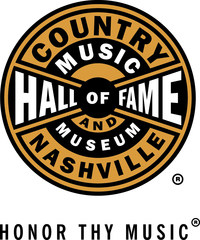
Whats Up category interest
Revered vocalist John Anderson, influential guitarist James Burton and iconic country hitmaker Toby Keith were inducted into the Country Music Hall of Fame on Sunday, Oct. 20. The three honorees became the 153rd, 154th, and 155th members of the Hall of Fame during the annual Medallion Ceremony, held at the Country Music Hall of Fame® and Museum's CMA Theater.
From the podium at the invitation-only event, museum CEO Kyle Young told the audience how those three musicians "took very different paths" to country music's highest honor. Each of them, however, emerged from working class backgrounds and discovered their gift early in life. "Music was their calling," Young said. "And a life of exceptional creativity was their destiny, because each had an unyielding drive to succeed—and talent that was undeniable."
John Anderson
In the case of Anderson—the night's first honoree—that drive took the "Swingin'" singer from his hometown of Apopka, Florida to Music City when he was just seventeen. After five years of club gigs and odd jobs—including doing construction on the roof of the Grand Ole Opry House—Anderson signed a recording contract and began a steady ascent to stardom. He appeared to hit his peak with a string of chart-toppers in the early 1980s: "Wild and Blue," "Swingin'" and "Black Sheep." But lightning struck again a decade later, when Anderson's 1992 album Seminole Wind kicked off a new wave of chart successes, including its acclaimed title track as well as "Straight Tequila Night" and "Money in the Bank," each buoyed by his unmistakable voice.
"Folks say that John Anderson sounds like Lefty Frizzell," Young said. "Or Haggard, or Jones. But they're wrong. He took on elements of his idols, but he sounds like John Anderson. A singular vocal stylist."
The fact that three distinct vocalists could pay tribute to Anderson on Sunday underscored the strength and versatility of his songs. Friend and fellow traditional country stalwart Shawn Camp delivered an assured take on Anderson's ballad "I Just Came Home to Count the Memories," while eighty-five-year-old bluegrass great Del McCoury effortlessly reached the highest notes of "Would You Catch a Falling Star" as the Del McCoury Band performed, with Deanie Richardson on fiddle.
"Wild and Blue" (1982) wasn't just Anderson's first #1 hit—it has been a longtime favorite of acclaimed Americana singer-songwriter Lucinda Williams, who first covered it in concert in the 1980s. She delivered another gorgeous rendition on Sunday.
After being inducted by Hall of Fame member, "Falling Star" songwriter and fellow Florida native Bobby Braddock—who called Anderson "my country hero"—Anderson arrived at the podium, and reflected on his journey while acknowledging the many friends, family members, even personal physicians, in the audience before him.
"[There were] a lot of hills and valleys, many twists and turns, and dead stops," Anderson said. "But I must say, behind all of that, there was a lot of adventure. And I got to choose my own way."
Toby Keith
Toby Keith died in February at age sixty-two, after a battle with stomach cancer—just three days after voting concluded for the 2024 Hall of Fame inductees.
"He didn't get the chance to hear the news that he had been inducted," said Keith's wife, Tricia Covel.
"I have a feeling…he might have thought, 'I should have been.'"
The audience chuckled, recognizing the cocksure attitude that, in part, made Keith a larger-than-life star. But as Young outlined, it took a lot more than confidence to make Toby Keith.
He began his adult life following his father into the oil fields of Oklahoma, but soon embraced his twin gifts for singing and songwriting. From his chart-topping first single, "Should've Been a Cowboy," many of Keith's songs were self-penned, and his career truly took flight as he gained creative control, leading to redefining hits such as "How Do You Like Me Now?!" and "I Wanna Talk About Me." Those songs also set the stage for Keith's future as a country music mogul, operating his own label, Show Dog.
But the September 11th attacks—which occurred months after the passing of his father, an army veteran—also shaped Keith's path. For the next eleven years, he traveled to perform for U.S. troops in Afghanistan and Iraq, and recorded several songs that recognized their sacrifice.
"For Toby, it was simple," Young said. "It was all about love of country and having the back of those who protect us."
The first performer to pay tribute to Keith on Sunday, Young noted, had once jammed with him on his tour bus in 2016, with members of the U.S. Navy's SEAL Team Six in attendance. It was crossover star Post Malone, who had just headlined Nashville's Nissan Stadium the night before.
"We love you, Toby," Malone said, before highlighting Keith's knack for a sweet melody and sharp hook on "I'm Just Talkin' About Tonight."
But Keith's songs could also pack powerful emotional heft—perhaps never more so than on "Don't Let the Old Man In," which he first wrote for a 2018 Clint Eastwood film before it became emblematic of his cancer battle.
"It was so representative of where he was in his life that it was striking," said Eric Church, who performed a solo acoustic rendition of the song. "And as a songwriter, it stopped me and stunned me."
Keith's friend and fellow Oklahoman Blake Shelton took the Toby Keith tribute segment out on a high note with a pitch-perfect medley of two of Keith's most lighthearted hits: "I Love This Bar" and "Red Solo Cup." He asked the room to sing along, but they'd made up their minds to do so from the very first line.
Keith was inducted by Alabama frontman Randy Owen, who called his friend "a man that I dearly loved."
"He loved his country. He loved his family. He proved that, over and over again."
James Burton
"James Burton didn't just play on records," Young said, introducing the night's final inductee.
"He changed the very fabric of our music."
The guitarist's seventy-year career began when he was fourteen, playing on the Louisiana Hayride in his hometown of Shreveport. Within three years, he'd begun to develop an inimitable picking style, which he flashed on Dale Hawkins's influential blues-rock single "Susie Q."
Burton's chops soon caught the attention of teen idol Ricky Nelson, who recruited him to be his sideman on stage, screen, and in the studio. After moving to Los Angeles, Burton became an in-demand session musician, contributing licks to Merle Haggard's "Mama Tried" and Glen Campbell's "Gentle on My Mind."
When Elvis Presley returned to the concert stage in 1969, he called on Burton to be his bandleader, a position that would last until Presley's death in 1977. At the same time, he worked with cosmic country trailblazer Gram Parsons, which led to a long partnership with Emmylou Harris.
Burton also collaborated with John Denver, Rosanne Cash, Jerry Lee Lewis, and Barbara Mandrell—all on his way to defining "the guitar sound of modern country music," in Young's words.
Seventy years after Burton first started backing big-name singers, some of those same artists showed up on Sunday to offer up their talents for his sake. The first to pay tribute was Rock andamp; Roll Hall of Fame member Elvis Costello—for whom Burton leapt up from his seat in the front row to shake hands.
"We're just about to put out an album that we had hidden in a cupboard for forty years of James playing with me at the Royal Albert Hall in London," Costello said. "And I've got to tell you: that's the most off-the-hook guitar playing I've ever heard in my life—until what we're about to do right now."
Costello wasn't tooting his own horn, but singing the praises of guitar great John Jorgenson, who joined him to tear through the Ricky Nelson rocker "Believe What You Say," which Burton stamped with signature licks in 1958.
Though countless country guitarists express admiration for Burton, the night's next tribute performer, Brad Paisley, had a singular form of praise. He thanked Burton for his signature pink paisley telecaster, which, he joked, stopped him from changing his name to "Brad Plaid." But the real compliment came through his dizzying and dexterous performance of Haggard's "Workin' Man Blues," which Burton played on in 1969.
Rodney Crowell and Emmylou Harris once shared the stage with Burton at Dodger Stadium—where Burton won over a sea of fans by playing a guitar solo behind his back, Crowell recalled on stage Sunday. For his induction, they were joined by Vince Gill to perform "Till I Gain Control Again," a Crowell-penned song that Harris recorded in 1975.
"Typically, we would wrap up our tribute performances at this point in the ceremony," Young said upon returning to the stage. "But when a dear friend of James Burton says he really wants to join in the festivities, and show appreciation for all he learned from James, who are we to say no?"
Enter one of the Medallion Ceremony's most stunning surprises in recent memory: Keith Richards.
"I made it, James" the Rolling Stones guitarist said with a grin after spotting his hero in the front row, adding, "I don't think I'd be here without him."
With the Stones' new drummer Steve Jordan sitting in with the band, Richards revved into Gram Parsons's "I Can't Dance" with Gill and Harris by his side. With a groove so irresistible, Richards started impromptu reprise after the house band had wrapped the song up. As Young said in introducing Richard as the fourth tribute performer for Burton, who are they to say no?
After being inducted by Gill, Burton's remarks, like his playing, were precise and economical.
"All these guys I work with, they're all my heroes. . . . I love them all, and I thank God for making all this happen."
The evening closed, per tradition, with a singalong of the Carter Family's "Will the Circle Be Unbroken." This year, Country Music Hall of Fame member Tanya Tucker led the chorus, joined on stage by her show-stealing bulldog, Stella Quaid.
The Medallion All-Star Band included Jen Gunderman (keyboards), Tania Hancheroff (vocals), Mike Johnson (steel guitar), Rachel Loy (bass), Jeff King (electric guitar), Jerry Pentecost (drums), Deanie Richardson (fiddle and mandolin), Mica Roberts (vocals), Biff Watson (bandleader and acoustic guitar) and Charlie Worsham (rhythm guitar, banjo and vocals).
Produced by the staff of the Country Music Hall of Fame and Museum, the annual Medallion Ceremony celebrates the unique talents, personalities and backgrounds of each Hall of Fame inductee, as well as the important turning points and the breakthrough artistic achievements that defined their careers. The ceremony includes speeches, live musical tributes and original video biographies, created by the museum staff using recorded performances, past televised interviews and historic photos culled from materials in the museum's Frist Library and Archive. The ceremony is made possible in part by underwriting from the Country Music Association and other contributors.
More Photos
More from What's Up
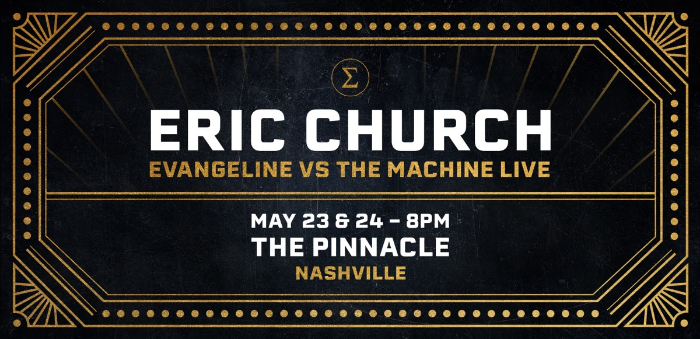
What's Up
Eric Church Brings Evangeline vs. The Machine Live to Nashvilles The Pinnacle May 23 - 24
Tickets On Sale to Church Choir Members Monday, March 31

What's Up
NPR Musics "Tiny Desk Radio" Show Debuts on Radio Stations Nationwide April 17
Tiny Desk Radio can be heard on radio stations across the country starting April 17
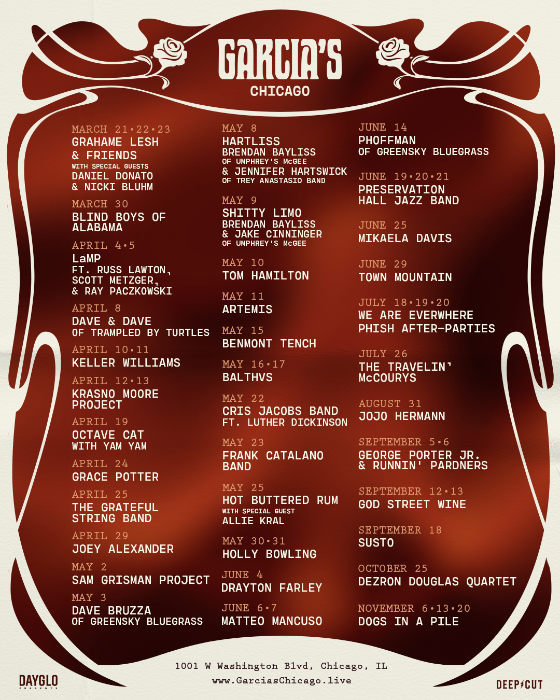
What's Up
Dayglo Presents Announces Garcia’s Chicago, A New Concert Venue And Culinary Destination
Venue Celebrates The Life, Music And Cultural Impact Of Jerry Garcia’s Legacy
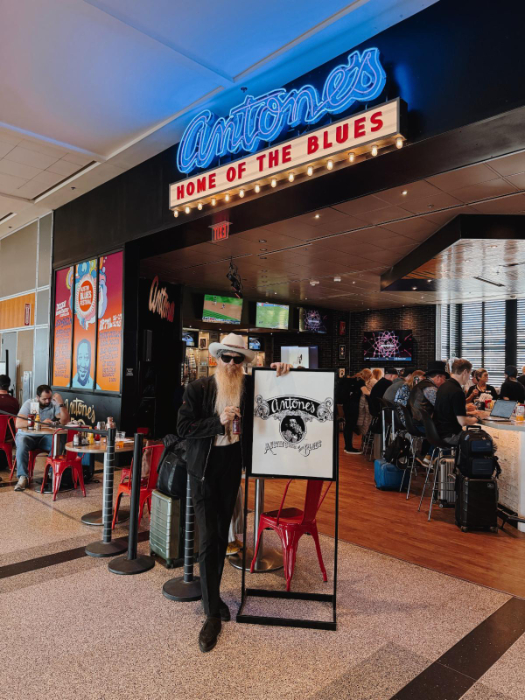
What's Up
Antone’s Opens New Location at Austin-Bergstrom International Airport, Bringing Iconic Blues Legacy to Travelers
Timing of new location coincides with Antone’s 50th anniversary

What's Up
Rolling Stone and Sonesta Announce Expansion of Musicians on Musicians Event Series with a Five-City Tour in 2025
The "Musicians on Musicians" Tour Kicks off in Austin on March 24, with Charley Crockett and Noeline Hofmann

What's Up
Sara Bareilles, Jackson Browne, and Kristin Chenoweth Join Wyclef Jean As Honorees Of Music Will 2025 Benefit
Benefit Supports Music Will’s Mission to Transform Young Lives Through Innovative, Popular Music Education Programs in Public Schools

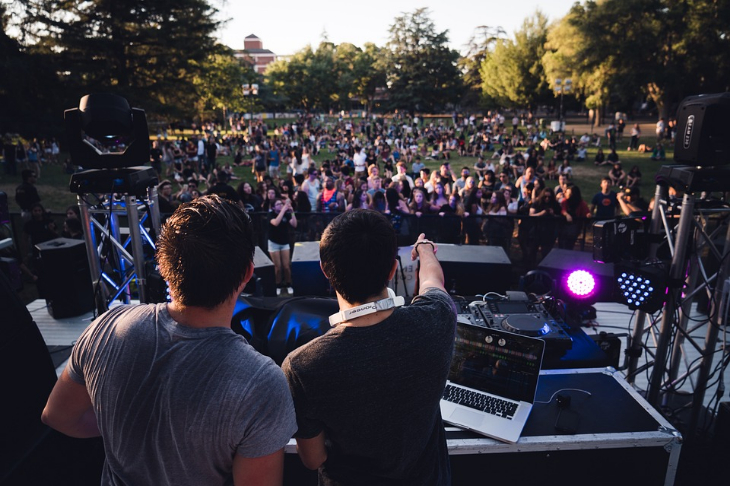



 Newsletter Signup
Newsletter Signup